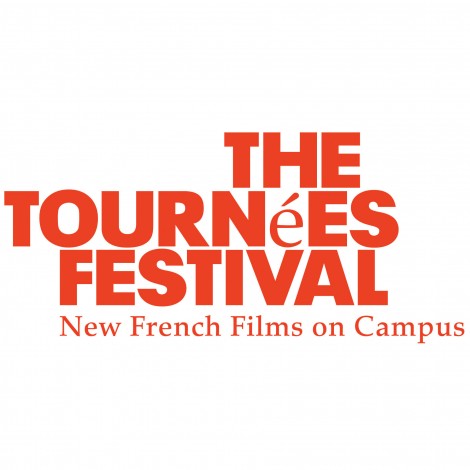
Ohio Wesleyan to Host Free French Film Festival March 18-April 8
You are cordially invited to OWU’s second annual Tournées French Film Festival!
The festival is a great opportunity to become better acquainted with the diversity of French culture and filmmaking creativity. The features are artistically daring and thought-provoking, dealing with topics ranging from the French Revolution to life in a small town by the sea, and a Parisian female street gang.
All screenings feature English subtitles, start at 7 p.m., and are free and open to the public. The films are presented with introductions and post-viewing discussions led by OWU faculty and students.
This format allows the events to be much more interactive and engaging, and we are delighted that there is greater student involvement this year. It is driven both by their keen interest and the recent creation of Allons-y!, the OWU French Club.
The festival is made possible through a generous, nationally competitive grant from the French-American Cultural Exchange Foundation recently awarded to Dr. Ana Oancea. Please contact her with questions at aioancea@owu.edu.
 The Artist
The Artist
7 p.m. March 18, 2016
Merrick Hall, Room 301
Introduced by Dr. Martin Hipsky
A delightful homage to silent-era Hollywood, Michel Hazanavicius’s mostly silent film, opens in 1927, when preening matinee idol George Valentin, is still the top draw at Kinograph Studios. George acts as a mentor to Peppy Miller, a chorus girl with big ambitions. The Artist tracks both Peppy’s ascent (through amusing montage) and George’s decline as he refuses to acknowledge synchronized-sound as more than a passing fad. The movie pivots on the spry connection between Dujardin and Bejo, both nimble performers and elegantly turned out in period finery and pomade. Among other awards, the film won five Oscars, including Best Film, Best Leading Actor, and Best Director.
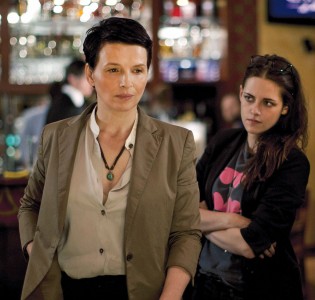 Clouds of Sils Maria
Clouds of Sils Maria
7 p.m. March 21, 2016
Hamilton-Williams Campus Center, Benes Room B
Introduced by Dr. Ana Oancea
Olivier Assayas’s magnificent Clouds of Sils Maria explores the unstable boundaries between performing and being. Juliette Binoche plays Maria Enders, an internationally renowned star; Kristen Stewart, as Valentine, is Maria’s personal assistant. Maria, who’s “sick of acting on wires in front of green screens,” is considering whether to star in a revival of the stage drama that launched her career twenty years ago, in which she played a cunning ingénue. In the remounting, Maria is to portray the spurned middle-aged lover; the part she originally inhabited is offered to Jo-Ann Ellis (Chloë Grace Moretz), a rising phenomenon with a Lindsay Lohan–like penchant for scandal and self-destruction. Though Valentine’s position requires constant deference to her employer, the aide doesn’t hesitate to challenge her boss.
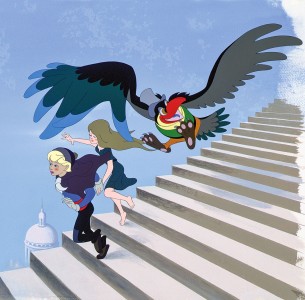 The King and the Mockingbird
The King and the Mockingbird
7 p.m. March 25, 2016
Merrick Hall, Room 301
Introduced by Dr. Ellen Arnold
Paul Grimault has long been regarded as the greatest of French animators; The King and the Mockingbird (1980) is the pinnacle of his five-decade career. The history behind the film has contributed to its legendary status: Grimault, working with screenwriter Jacques Prévert, began The King and the Mockingbird in 1948 as an adaptation of Hans Christian Andersen’s “The Shepherdess and the Chimney Sweep.” It is a wondrous vision, dominated by soft reds, yellows, and blues, and filled with futurist touches: Although set during medieval times in Tachycardia, the realm of the vain and universally despised monarch Charles XVI, the film features not only rocket travel but also giant robots. Hailed as an influence by the eminent Japanese animator Hayao Miyazaki, Grimault’s film is a visual and aural delight.
 Girlhood
Girlhood
7 p.m. April 1, 2016
Hamilton-Williams Campus Center, Benes Room B
Introduced by students Ornella Bisamaza, Onyinye Okoli, and Victor Soder
Céline Sciamma’s third feature continues to probe this perceptive writer-director’s abiding interest: female pubescence and adolescence, the stage when bodies and identities are still in flux. Set in the impoverished banlieues that ring Paris and are home to many of its French-African denizens, Girlhood focuses on Marieme (Karidja Touré), a sixteen-year-old who assumes responsibility for her two younger sisters while their mother works the night shift. School provides no haven from these hardships: Having already repeated a grade twice, Marieme is told that vocational training is her only option. Rather than accept this indignity, she falls in with a triad of tough girls, abandoning her braids for straightened hair, her hoodie for a leather jacket—and learning the pleasures of raising hell at malls in Les Halles and impromptu dance-offs on the Métro.
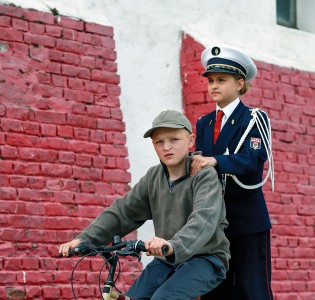 Li’l Quinquin
Li’l Quinquin
7 p.m. April 4, 2016
Hamilton-Williams Campus Center, Benes Room B
Introduced by student Julia Stone
Bruno Dumont, an auteur often considered a spiritual heir to Robert Bresson, reveals his considerable talents for dark, slapstick comedy in Li’l Quinquin. Set in the Nord-Pas-de-Calais region (where Dumont himself grew up), the film centers on a series of grisly murders: The body parts of the victims are found stuffed inside cows and other farm animals. As two bumbling cops, Captain Van der Weyden (Bernard Pruvost) and Lieutenant Carpentier (Philippe Jore), try to stop the killer before he—or she— strikes again, a few local kids, with little to occupy them now that school’s out for the summer, do some investigating on their own. More than just gallows humor, Li’l Quinquin also takes stock of the racism and xenophobia plaguing this small seaside town.
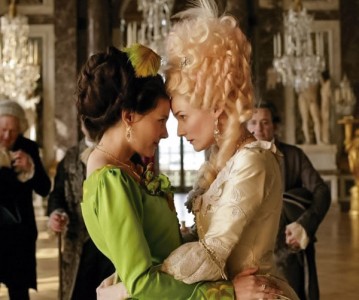 Farewell, My Queen
Farewell, My Queen
7 p.m. April 8, 2016
Merrick Hall, Room 301
Introduced by students Caroline Anderson, Jessica Sanford, and Meg Teitelman
Benoît Jacquot’s nimble, lush adaptation of Chantal Thomas’s 2003 novel about the chaos at Versailles on the eve of the 1789 revolution is told not through the vantage point of the monarchs but through the eyes of Sidonie, the besotted reader to Marie Antoinette. Compressed to four tumultuous days and taking place almost entirely within the actual royal palace, Farewell, My Queen tracks its protagonist relentlessly: The camera is often positioned just a few inches behind Sidonie as she scrambles down corridors, sometimes tripping, as she tries to make sense of the rumors she hears among other courtiers and rushes to read a few pages of Rousseau to Her Majesty. “Your love of the queen makes you blind to her caprice,” one of Louis XVI’s historians tells Sidonie—and the pleasure of Jacquot’s film is in watching various strains of discreet yet heated, deluded passionate attachment performed.
The Tournées Festival was made possible through the support of the Cultural Services of the French Embassy in the US, the Centre National de la Cinématographie et de l’Image Animée, the Franco-American Cultural Fund, the Florence Gould Foundation, Campus France USA, and highbrow entertainment.
The festival also benefited from the generous support of the Modern Foreign Languages department and Allons-y!, the OWU French Club.

